SUMMARY
This is AI generated summarization, which may have errors. For context, always refer to the full article.
![[Only IN Hollywood] Justine Bateman dares you to age naturally, confidently](https://www.rappler.com/tachyon/2021/06/JustineBateman1.jpg)
Remember Justine Bateman, best known for playing Mallory Keaton in the popular 80s TV sitcom, Family Ties?
Justine directed her first feature film, 2021’s Violet, and wrote two books, Fame: The Hijacking of Reality (2018) and Face: One Square Foot of Skin, published this year. The actress, who portrayed the sister of Michael J. Fox’s Alex in the beloved TV show, advocates for women to love their aging faces and avoid plastic surgery.
In her second book, a follow-up of sorts to her bestselling first book, the 55-year-old writes fictional vignettes based on her interviews with people on aging and beauty.
The press release for Face: One Square Foot of Skin touted that the book is “based on ‘older face’ experiences of the author, Justine Bateman, and those of dozens of women and men she interviewed…The book presents the reader with the many root causes for society’s often negative attitudes toward women’s older faces.”
“In doing so, Bateman rejects those ingrained assumptions about the necessity of fixing older women’s faces, suggesting that we move on from judging someone’s worth based on the condition of her face.”
After Family Ties ended, Justine went on to do stage work and more TV projects in the 1990s. The sister of actor Jason Bateman – she also went into acting after he joined Little House on the Prairie – wrote and directed her first two short films and penned scripts for TV shows.
This year, Violet, a drama which she wrote and directed, starring Olivia Munn, Justin Theroux and Luke Bracey, premiered in the South by Southwest Film Festival.
In our video conversation, the New York native elaborated on her push for women to be confident about aging without resorting to the scalpel.
“When I was a teenager – and I’ve mentioned this before and I talk about it in the book – I looked forward to looking like older European actresses because I was seeing films with Anna Magnani, Isabelle Huppert, and Charlotte Rampling,” Justine began.
“They have very specific elements to their faces that I thought was really interesting. They were very confident and excellent artists at what they did. I wanted to have that kind of confidence.”
“I wanted to be as interesting as I thought they were. So, I have that to look at. I feel like the more women who are comfortable with themselves once they’re older, the better.”
“I just feel like everybody’s responsible for their own path. I’m not here to change anybody else, the beauty industry. I’m not here to make sure everybody changes their behavior. I’m really not.”
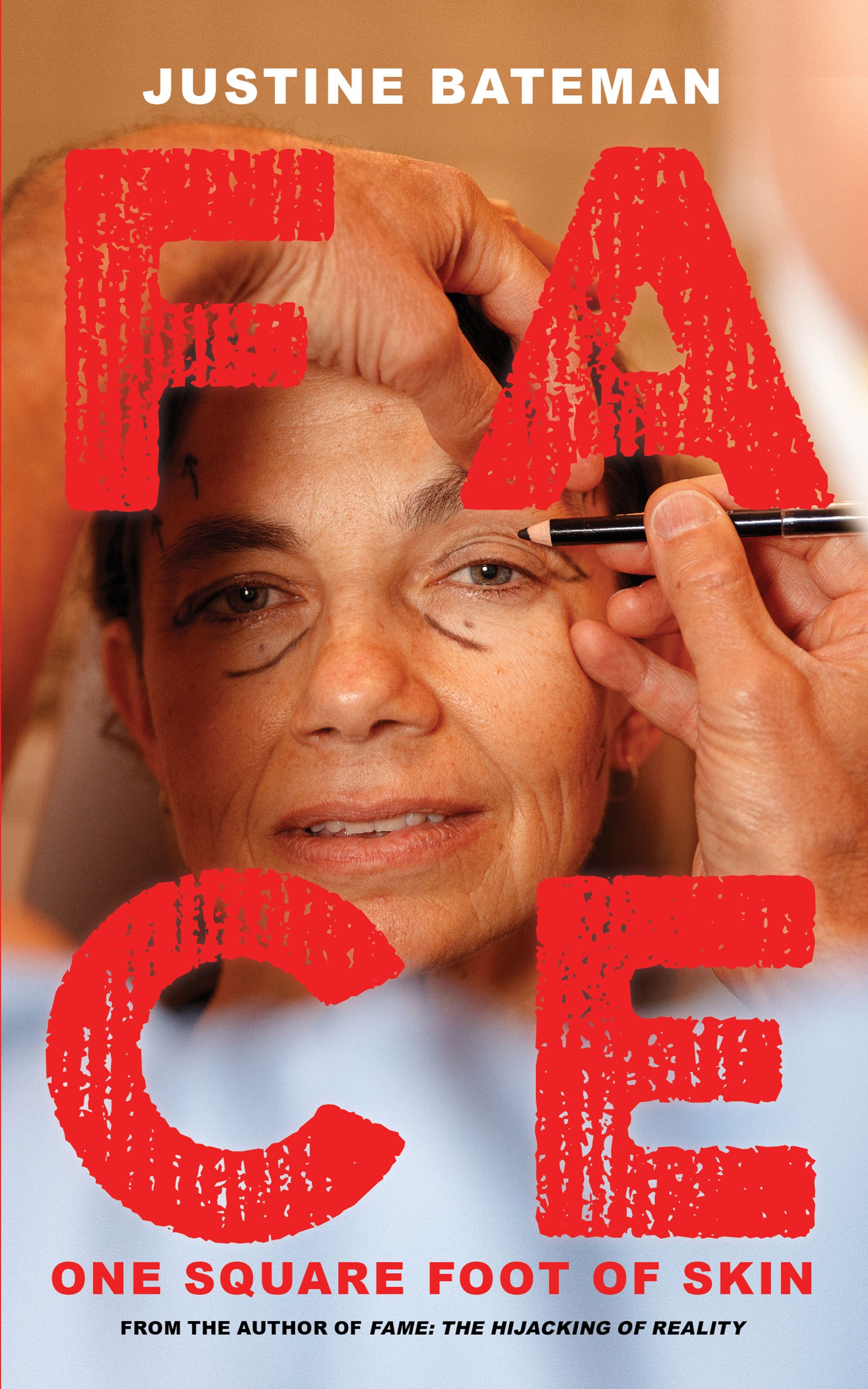
Justine, who dated teen idol Leif Garrett, said that even in the 80s, no one pressured her to look in a certain way. “I personally have not had any pressures, suggestions or anything about my looks, not as a writer/director/producer, of course,” she said.
“And not years ago when I was acting. I just didn’t happen to have that experience. All the criticism that I encountered came from just regular people online and still, to this day.”
The author-director, who is a licensed pilot of single-engine planes and a certified scuba diver, cited the good and bad sides of social media.
“Oh gosh, social media is a tricky thing now. It can be a great way to connect with people and it can also be just a horrible way to discover what everyone’s thinking. Some of that is better left unknown.”
Justine has two children with real estate developer Mark Fluent, whom she married in 2001. She makes it a point to teach her kids about the tricks of digital technology and guide them in the social media age, where self-promotion is cultivated.
“I have a son and a daughter, two teenagers,” she shared. “One of the things I’ve done is just try to pull the curtain back for them to say, this is photoshopped or this is visual effects CGI in this particular film.”
“It’s attached to the movement of an actress’ face so her face is smoothed over throughout this entire film.”
“And also, to encourage the achievements that they have that are immutable, that can’t change unless they want it to change, like their sense of humor, intelligence, hunger for academic enrichment, work ethic, curiosity, all those things that can’t be taken from them.”
“They can only be increased. It’s up to them. It’s in their control. But what somebody else thinks about how you look, it can’t be controlled so it’s a bad foundation to build a house on.”
On her advocacy for women to age naturally, Justine stressed, “I don’t have the wherewithal or the time to change everybody’s opinions.”
“I do know I’ve gotten close to a thousand DMs from women who have just kind of sighed a breath of relief saying, ‘Everybody in my small town here in the US is telling me I should get some procedures.’ ”
“‘I don’t want to. I was feeling along like I was the only one and then I saw your interview or read your book and now, I feel like I have company. I feel like I’m not the only one and I feel more confident about just not doing it.'”
“And perhaps the more women who feel that way, then the less people you’ll have using the filters or subscribing to that thinking.”
“But like I said, I’m not here to take on the beauty industry or try to change how people react to others. Every time somebody reacts poorly to somebody’s older face, they’re just telling me about themselves. They’re not telling me about me.”
“They’re telling me that they are very insecure about their own appearance or about their own life, achieving what they want to achieve in their life and they’re just projecting it onto anybody around them. I feel bad for them.”
“It’s definitely not a campaign for me. When I was attacked for my face online, I had to unwind what irrational fears did I have in myself that were acting as anchors for these ideas. I was pulling them in and making them a belief – these ideas about my face.”
“I wanted to look at society as a whole – what fears exist in society that we share, that are acting as anchors to bring in this idea that older women’s faces are something that need to be fixed or erased.”
“So that’s what the book goes into – those ideas. And for someone who’s reading it, maybe they’ll decide, wow, that’s an idea that rings true for me and I don’t want to have that idea anymore, or that fear.”
“It has to do with plastic surgery becoming safer, more affordable, more artistic, if you will,” Justine said about the seeming increase of women resorting to cosmetic surgery.
“It used to be just a bad plastic surgery or nothing. It was that plus, at least in America, there has never been a time when people are looking at themselves as much as they are now because of social media.”
“Like I said, there are good things about social media but one of the drawbacks is people constantly looking at themselves. Then they introduce all these (photo) filters because people are constantly looking at themselves.”
Justine shared some of the reactions she gets from people who read her books.
“On Face, I’ve gotten close to a thousand DMs from women saying, I don’t want to do anything to my face but people around me are pressuring me to, and now I feel confident saying no.”
“I got a DM from a man who said that his wife of many years wants to get a facelift and he doesn’t want her to get it at all. He bought the book to give her to hopefully change her mind. He’s in his 60s. He doesn’t want his wife to change her face.”
“I’ve gotten quite a few people saying, ‘I’m battling cancer right now. I wish I’d spent the years before where I was worried about my face. I wish I had just been happy that I was healthy.’”
“Yeah, lots of reactions. Lots of people saying like, ‘Wow, it made me realize how much I’ve been criticizing my own face. And I have teenage daughters and I’m afraid that they’ve picked up on that and that they’re criticizing their own faces now. I want to unwind that.’ ”
Told about how some actresses’ faces can no longer convey more varied emotions because of plastic surgeries, Justine agreed.
“I have the same reaction. As filmgoers, we’re supposed to get a lot of information from the actors as far as the tone of the film. I remember seeing something recently.”
“I had to go online and read a summary of the episodes of this particular TV show because I wasn’t sure. I saw things going on in the scene but I didn’t know if they were good or bad for that character because I couldn’t tell.”
“There wasn’t much reaction to it. I don’t know if that was just their acting but they also had faces that weren’t very mobile. And the shame of it is that I believe as the fat leaves my face more and more, when I make even the slightest gesture or the slightest move in my face, it shows very easily.”
“Though I’m not acting anymore, for actresses, when you have that ability, an increased ability to just do the most subtle move, can show more easily in your face than it could when you were 20.”
She volunteered who in Hollywood shared her enthusiasm for the natural look.
“There’s one actress, also a musician, who’s been very excited about all of this, and that’s Juliette Lewis. She very early on reposted something of mine about this book. Andie MacDowell has reacted quite a bit positively. Also, Paulina Porizkova.”
She looks forward to the release of Violet, described as a movie about “a film development executive who realizes that ‘guiding voice’ inside her head has been lying to her about everything.”
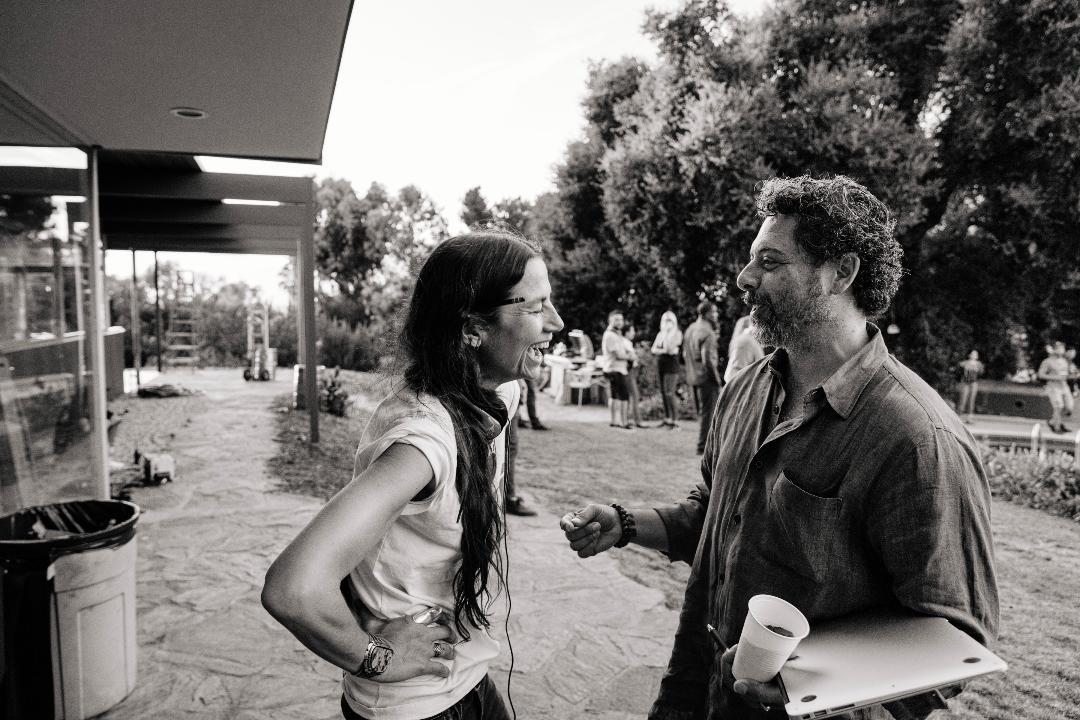
“We’re talking with some distributors now so hopefully, we’ll have an announcement soon,” Justine said about her feature directing debut.
“Violet is about the critical thoughts we have. In the film, I call it the voice that treats us poorly and makes us make decisions out of fear.”
“I feel that the more decisions we make out of fear, the further we get from being our true selves. So, it’s about a woman who realizes that that voice and those thoughts are lying to her and she goes against them and tries to unwind the damages that they’ve done in her life.”
Also the film’s writer, Justine pointed out the inspiration for her screenplay.
“Years ago, I lived a life where I made fear-based decisions. I didn’t really realize it. It wasn’t ‘until my late teens, early twenties that I realized what I was doing.”
“You have the discomfort of knowing you’re doing it while you’re doing it and then trying to stop doing that and then recognizing like, I’ve done it this way for so long.”
“It’s the way that I’m comfortable with. It sounds strange to not act out of fear. It felt a little frightening because it was unfamiliar to me.”
On realizing her dream to be in charge behind the cameras – and not be in front of the lenses – Justin said, “I’ve always wanted to direct since I was about 19 but the timing didn’t feel right.”
“For me, in doing creative things, I find I have to wait for the timing. Otherwise, I just make a pile of nothing.”
“What had to happen for me was the door on acting had to be shut on me by my life. Otherwise, I’d still be doing some acting jobs so back then it just stopped.”
“I believe it’s because I needed my head turned in this direction because I wasn’t completely going in it. So that did me a favor. Things shifted and then it took me some time to realize, okay, I need to completely go 100% in this direction.”
“Then I went to UCLA and got my computer science degree. I wrote the two books and the two shorts and then did this feature film. I don’t know if any of that would have happened if that acting door hadn’t shut for me.”
Going to college in her 40s will be her next book’s material. In 2016, Justine got a bachelor of arts degree in computer science and digital media management from the University of California, Los Angeles.
“That’s going to be the subject of my third book because I kept a record of my experience. I went to UCLA at 46 and graduated at 50.”
“I had been in the digital space and I had been pitching projects that combined tech and entertainment in ways that augmented reality and used the touch screen and ways to make what I call layered projects.”
“I couldn’t get the traction on funding for those. People kept saying, oh, you’re four years ahead. I felt very frustrated with that.”
“Then 4 years later, when it proved itself out, and people started asking me about ideas that related to something I had been teaching for years prior.”
“So I thought, I’ll go and get a computer science degree so I can put these projects together myself, get them going myself so I can really understand more so all the possibilities and that will help facilitate the writing of these projects.”
“I wound up at one of the most thorough computer science programs in the United States at a university. It was some of the most fulfilling and frustrating experiences of my life.”
On her brother Jason, the Ozark star who directed that series’ 10 episodes, Justine said, “It’s interesting. We both started out acting and then he got into directing far sooner than I did.”
“He started as a teenager and then he started producing very substantial shows earlier than me. So, he’s been ahead of me in those aspects, for sure.”
“He’s created a fantastic producing and directing career for himself. I’m really proud of him. My tastes run a little different than Jason’s. My tastes are more in the kind of avant garde.”
“But yeah, I’m very proud of him. He’s done a lot of really great work.” – Rappler.com
Add a comment
How does this make you feel?
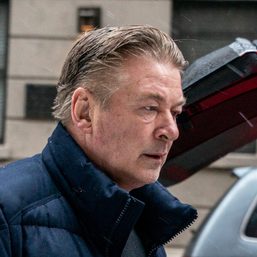
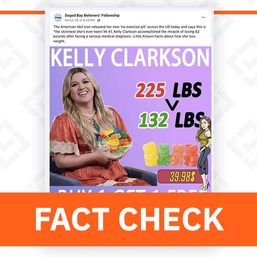
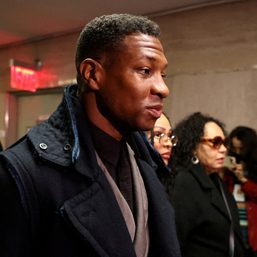
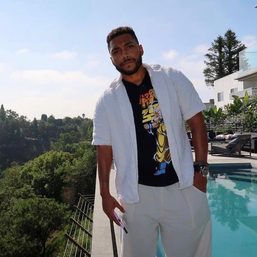
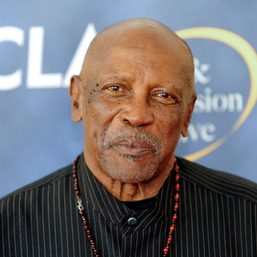
There are no comments yet. Add your comment to start the conversation.